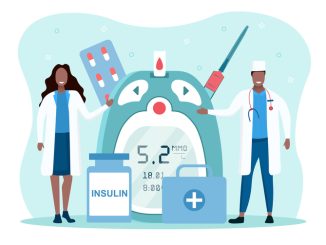
Discover how The London Inspire Programme is making strides toward improving health equity for Black Caribbean and African populations, addressing longstanding health inequalities
CREDIT: This is an edited version of an article that originally appeared on NHS England
Health inequalities continue to be a significant challenge, especially for Black Caribbean and African populations, who are disproportionately affected by conditions like diabetes, cardiovascular disease and chronic kidney disease. These groups often experience poorer health outcomes and lower levels of access to healthcare compared to other ethnic communities.
These pressing issues have led to the creation of the London Inspire Programme, a community-driven initiative co-chaired by Juliet Amoa, associate director of Equality, Diversity, and Inclusion Community Health and Engagement for the London Borough of Lambeth, and Cedi Frederick, chair of NHS Kent and Medway.
Promoting Tailored Interventions
Funded by NHS England and supported by the Caribbean and African Health Network (CAHN), the London Inspire Programme is focused on enhancing the health and wellbeing of these communities throughout London. It does this by promoting tailored health interventions, improving access to healthcare services and fostering trust between healthcare providers and local communities.
In its inaugural year, the London Inspire Programme established a solid foundation for future initiatives through community engagement events, free health screenings, public health awareness campaigns and the launch of a comprehensive website.
Shaping Solutions
The programme collaborates with integrated care systems, primary and acute care trusts, local authorities, and the voluntary sector to forge partnerships that drive meaningful improvements in health outcomes. It emphasises the importance of community engagement, ensuring that Black voices are heard, and that the community actively participates in shaping solutions to the challenges they encounter. Additionally, the programme aims to expand its initiatives to enhance community health literacy through webinars and events that offer essential health information and screenings.
It represents a bold, strategic effort to address the health inequalities that have historically impacted Black communities. This initiative underscores the significance of community-driven health interventions in achieving long-term, sustainable improvements in health equity.


Be the first to comment